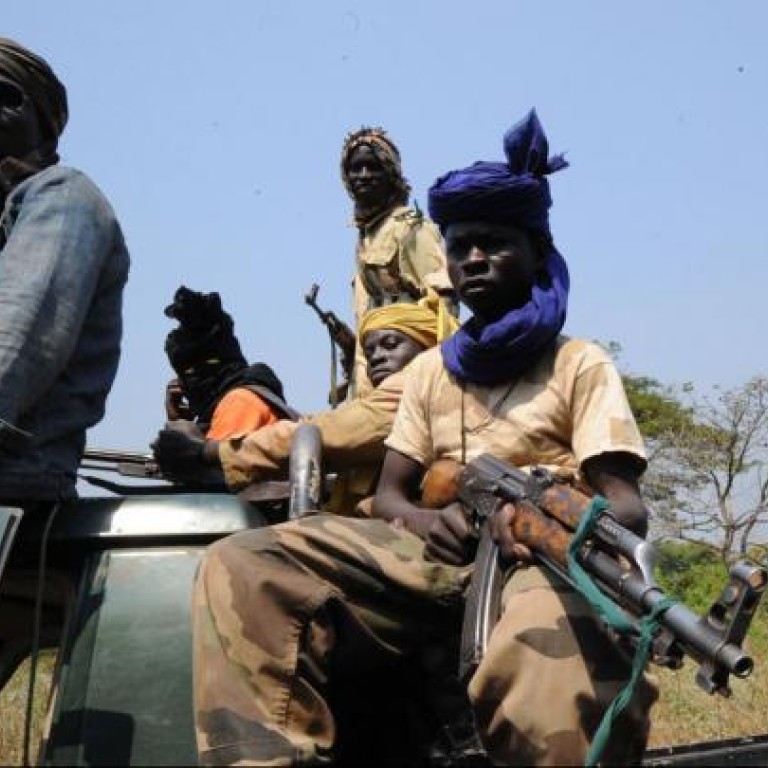
Central African Republic's Francois Bozize flees as rebels invade capital
Rebels in the Central African Republic seized control of the capital yesterday after a rapid assault, with President Francois Bozize reportedly fleeing the country.
Fighters in the Seleka rebel coalition launched an offensive on Bangui after the collapse of a two-month-old peace deal in the notoriously unstable former French colony - ignoring a call for talks to avoid a "bloodbath".
A well-placed source said Bozize had "left the country in a helicopter", but did not disclose his destination, while French Foreign Minister Laurent Fabius confirmed only that the president had fled Bangui.
After a morning of gun battles centred around the presidential palace, witnesses reported widespread looting by armed men as anarchy reigned in the riverside capital in the wake of the seizure, with attacks on shops, houses and cars.
"The rebels are in control of the city even though there is still some sporadic gunfire," a source in the multinational central African force FOMAC said.
The fighting erupted after the rebels - who first launched an offensive against the government late last year - moved into the city on Saturday, facing little resistance from the poorly equipped and ill-trained national army.
There were no official statements from the government about the latest developments, although a high-ranking military source confirmed: "What is certain is that [the rebels] have taken the city."
A witness said: "We heard gunfire everywhere in the city centre. It was chaos."
The International Committee of the Red Cross said there were "many injured people" flooding hospitals and medical centres in Bangui, and asked for secure access to the capital.
"The medical structures are not able to cope with this influx. The frequent electricity cuts … can have dramatic consequences on people who need help," Georgios Georgantas, head of the ICRC delegation in Central Africa, said.

Seleka spokesman Eric Massi said from Paris that the rebels controlled Bangui and military camps, and were deploying "to launch security operations and prevent looting".
France on Saturday called for an emergency meeting of the UN Security Council to discuss the deteriorating situation. Paris had not issued an evacuation order, but the estimated 1,250 French nationals in the country were advised to stay at home, said Romain Nadal, a spokesman for the president's office.
France sent some 350 troops to the landlocked country as reinforcements to back up the 250 soldiers already there, according to a senior French official.

